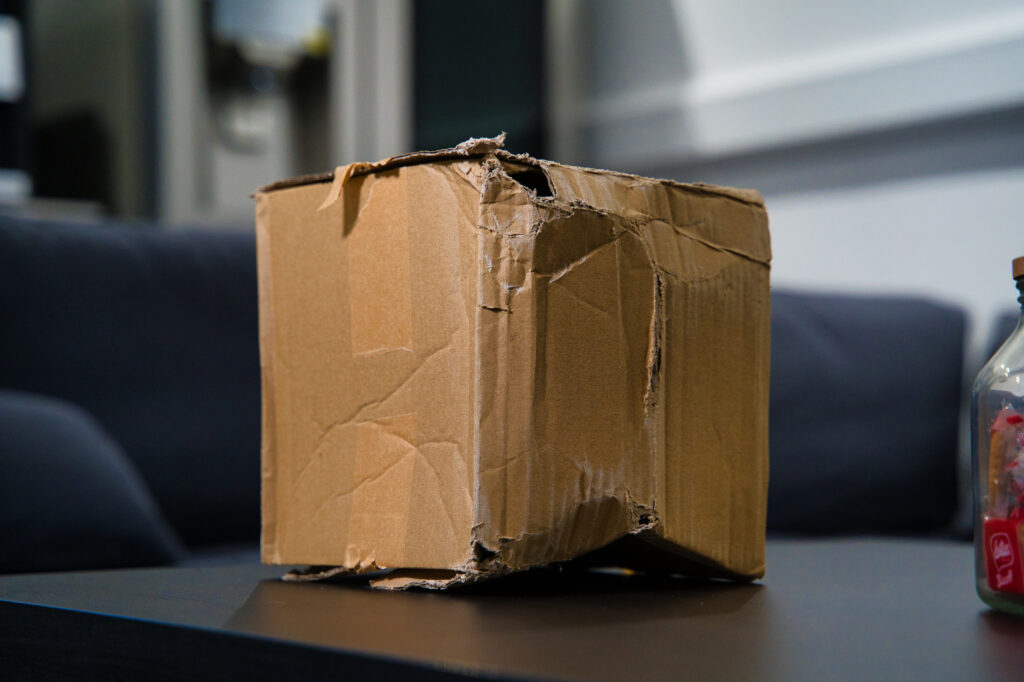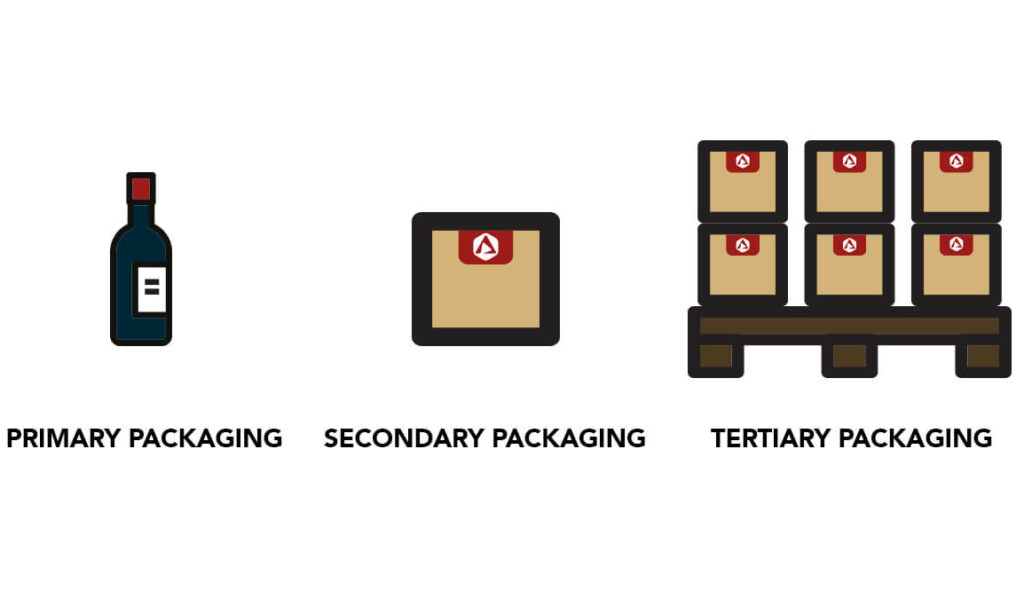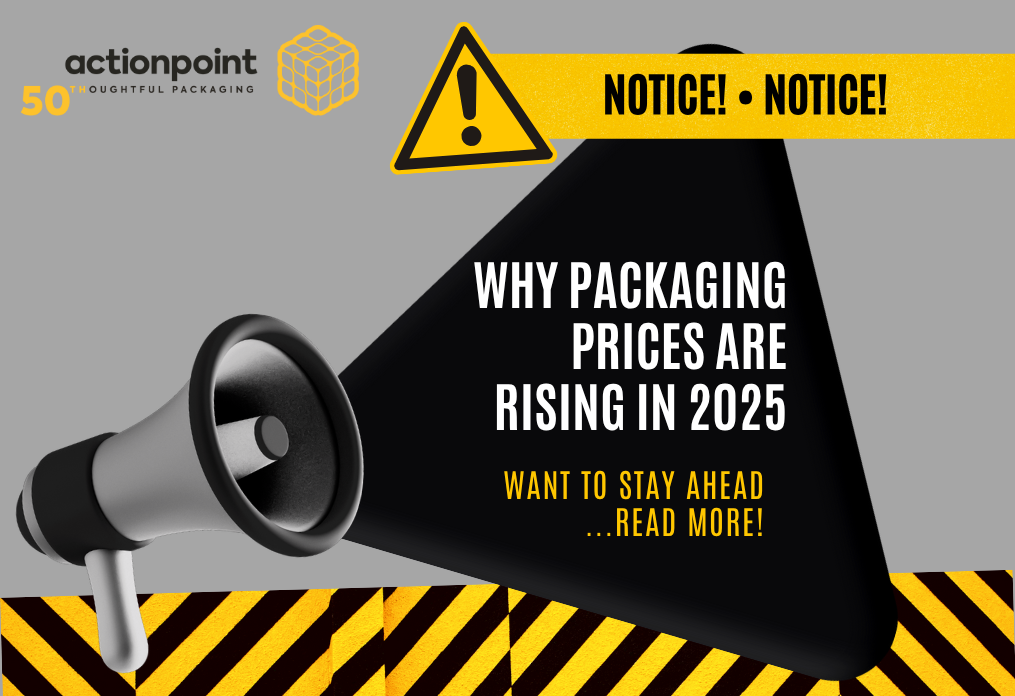Packaging’s primary role is to contain and protect your goods, but its influence goes much further. How well your packaging performs has a domino effect on the supply chain. The chosen design and materials (and the way they are managed) can help or hinder areas as diverse as logistics, sustainability, regulatory compliance, and supply chain resilience.
The price of failure
When packaging fails to protect your products, it creates a dissatisfied customer. They have to contact your business to arrange a refund or return the item and (if they’re not too annoyed) request a new one. As you know, rectifying problems is costly and time-consuming. Add up the expense of the additional customer service, goods replacement, packaging materials, assembly and packing time, and postage/delivery and it’s eyewatering. Not to mention the risk you’ve lost a repeat customer and gained a poor review.
Plus, of course, it impedes your ability to serve other customers. You’re using up valuable staff time, equipment, and storage and transport space to fix an avoidable error, rather than to fulfil more orders and grow your business.
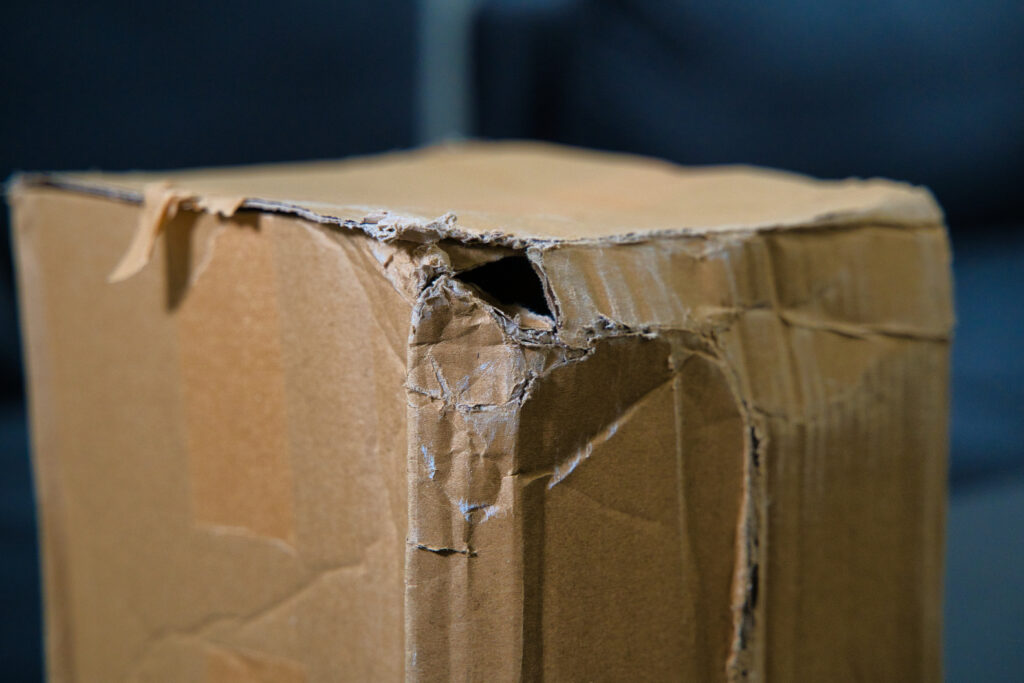
Damage control
When it comes to protection, bespoke packaging has the edge on off-the-shelf products. The reason being you have so much more control over every aspect of your packaging, and this allows you to address any potential problems or weaknesses. Take, for example, a corrugated box. With a custom solution, you can personalise (or add) a wide range of elements to create the perfect solution, such as:
- Dimensions, tabs, and flaps.
- Board grade and fluting.
- Paper type and coating.
- Adhesive and stitching.
- Scoring and perforation.
- Base (such as crash-lock).
- Hinged lid or open flap top.
- Tear-strip opening.
- Liners, partitions, and dividers.
- Voidfill or bespoke fitment.
- Adhesive strip for returns.
And that’s just for starters. The structure and substrate also factor in your preferred pallet size and stacking method; how high boxes will be stacked on the pallet; how long packed boxes will be in storage; and the levels of moisture, temperature, and humidity likely to be encountered. The result is highly tailored packaging that can withstand all the rigors of transportation. No more broken, spoiled, or contaminated goods.
Logistics efficiencies
Your packaging’s design, dimensions, weight, and materials have a huge impact on logistics. Fiddly, awkward, or generally poorly thought-out packaging slows down your production line and pack times, restricting your ability meet existing – or rising – customer demand. Bespoke packaging hands you a competitive advantage, opening up opportunities to save costs, reduce waste, and streamline your operation. It gives you the power to create solutions that are simpler and faster to pack, boosting staff productivity and speeding up order fulfilment. Designs can be more compact and stackable, allowing more products to be added to each pallet. This in turn maximises available storage, racking, and transport space while lowering shipping costs. Plus, by delivering additional goods on each journey, you’re saving fuel and transport related greenhouse gas emissions (GHGs) as well as shortening turnaround times.
Packaging supply
Unreliable packaging quality and supply lead to delays, downtime, and a great deal of frustration. It also means time spent chasing up these issues instead of focusing on more important matters elsewhere. Some try to avoid this problem by ordering more quantities of packaging, but that might not be the answer. Having too much packaging can also be costly to a business. Storing large amounts of packaging is not convenient or cheap, especially if you want to keep it out of the way and safe from the elements, damp, and pests.
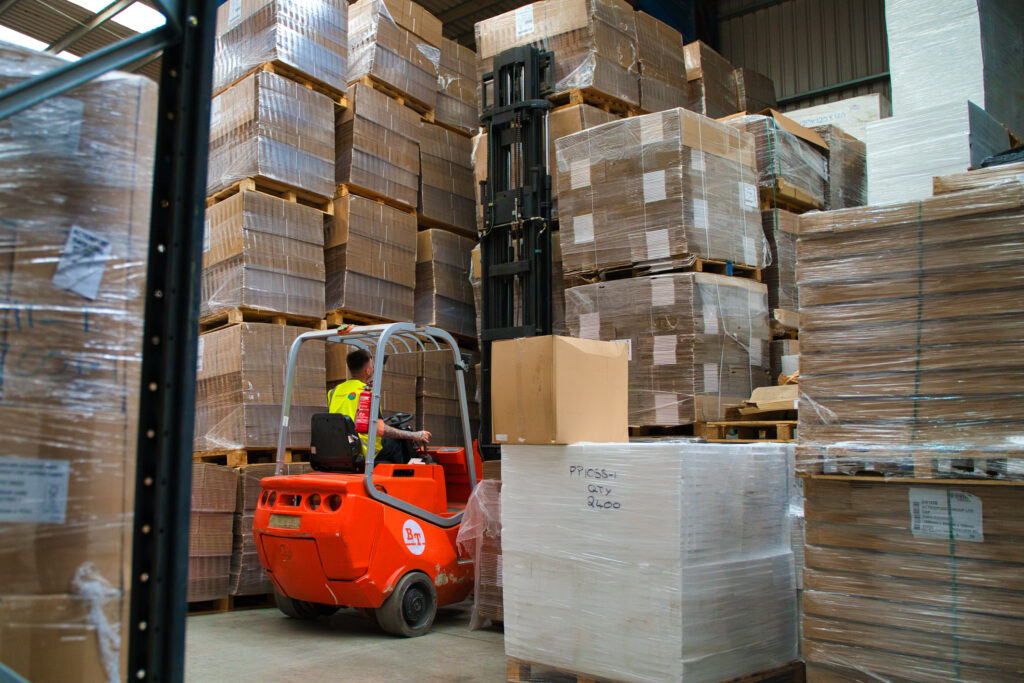
What’s the solution? Stockholding. Also known as stock and serve, or just in time deliveries, this is another key tool for optimising logistics. Bulk buying packaging stock and arranging for it to be held for you means you benefit from the economies of scale without the bother of finding somewhere to put it all. Stockholding saves on renting expensive warehouse space or frees it up for more product, equipment, or machinery. Planning ahead in this way gives you flexibility to meet peaks and troughs in demand and protects your business from bottlenecks or shortages in raw materials, ensuring an uninterrupted supply of packaging.
Sustainability
Companies are under a lot of pressure to make their packaging more sustainable. Governments and consumers alike are increasingly concerned about excessive packaging, waste, single-use plastics, and emissions. But it’s important to remember that sustainable packaging should solve your packaging problems as well as minimise your carbon footprint. Overpackaging is unacceptable, but it’s no good using so little packaging that your goods are routinely damaged. Any cost or carbon savings will be wiped out by the expense and activity involved in replacing them.
Bespoke packaging decreases waste by using only the amount of material needed to follow the size and contours of your goods. This shrinks any gaps around your products, so you don’t end up shipping empty space and/or using an abundance of voidfill. The design process considers the sustainability, cost, and efficiency of your packaging’s whole journey: from sourcing and availability of raw materials through to manufacture, storage, delivery, unboxing, and end-of-life. There is a huge choice of sustainable materials on the market that are thinner and lighter, made from renewable sources, use recycled content, and are themselves recyclable and biodegradable. Each one brings its own benefits, such as using lightweight materials to reduce courier charges and transportation GHGs, while Forest Stewardship Council FSC®-certified paper (FSC® C186587) can be traced back to its responsibly managed source and protects companies from accusations of greenwashing.
Regulatory compliance
Packaging regulations vary between the UK and abroad and across different industries. For example, packaging for edibles must be food safe, protect the contents from contamination, and display certain information and industry recognised symbols. But compliance is crucial if you are to reduce fees and avoid delays, fines, prosecution, and reputational damage. When your packaging meets relevant legal and safety standards, it builds trust in your brand and ensures smoother supply chain operations. If you don’t have an in-house packaging expert, working with a bespoke packaging supplier gives you peace of mind as they can help you futureproof your packaging. They make sure it is designed to keep a step ahead of legislation, including the newly updated Extended Producer Responsibility for packaging (EPR) in the UK, and the EU’s upcoming Packaging and Packaging Waste Regulation (PPWR).
Bespoke packaging design
For optimum protection, efficiency, and sustainability, custom packaging really is a strong contender. Unlike standard solutions, bespoke packaging is tailored to the unique nature of:
- Your goods
Design and materials are chosen based on your product’s size, shape, weight, bulk, and other properties for the best possible protection. For example, the ideal packaging for glass lighting will be very different to that needed to protect heavy machinery, electronics, chemicals, or frozen food. - Your operation
Packaging is created to work in harmony with your resources and operational style, making the greatest use of your staff, tools, machinery, space, and vehicles. You’ll be amazed at the efficiency improvements in your assembly, packing, and logistics. - Your goals
Solutions are designed to achieve your packaging goals such as decreasing damage rates, waste, or virgin plastics; introducing recycled material or branding; or enhancing functionality, pack times, or visual appeal. - Your environment
Materials are selected to perform within the setting your goods will be packed, stored, and transported. They are tailored to protect your products from hazards such as moisture, extreme temperatures, dust, and bacteria. - Your customers
Bespoke solutions consider first impressions, tamper proofing, the unboxing experience, ease of returns, and more, to help you meet or exceed your customers’ expectations and build brand loyalty.
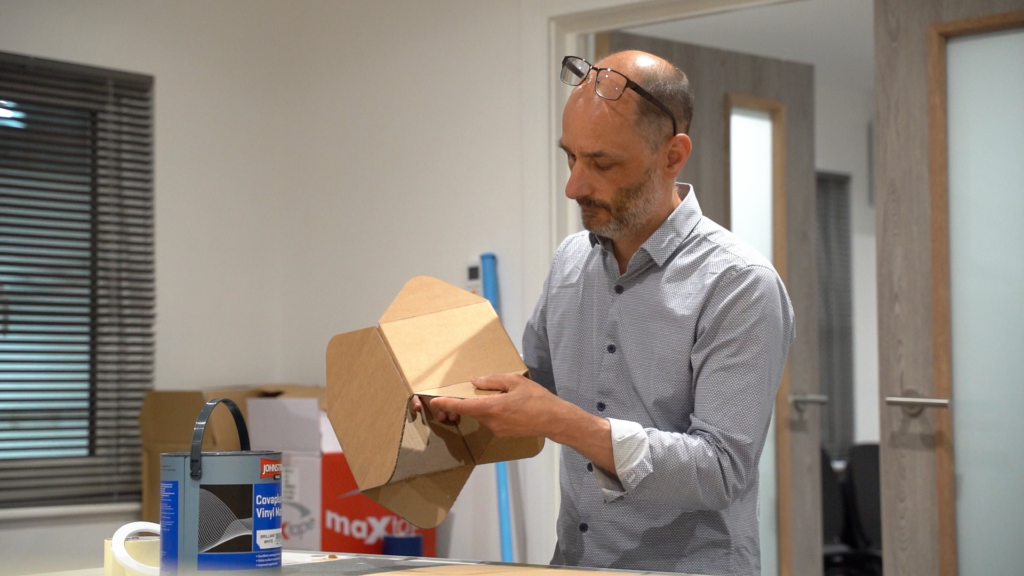
How Actionpoint can help
At Actionpoint, we have decades of experience creating bespoke solutions for a wide range of organisations and industries. We know which designs, configurations, and substrates work well together, and we seek out the latest innovations to create ever more efficient and sustainable packaging.
Added to this, we are in regular contact with our network of trusted manufacturers and have built strong working relationships. It keeps us up-to-the-minute on industry news and market trends and provides early detection of problems in the supply chain. Armed with this knowledge, we can alert our customers and help them to manage any risks. With Actionpoint’s finger on the packaging pulse, our customers benefit from shorter lead times, competitive prices, and advance warning to avoid or alleviate any issues likely to affect their packaging supply. Not only that, but we also give hands-on support to streamline warehouse operations, increasing their responsiveness and agility. Our services include:
- Offering 3-months’ worth of stockholding as standard with next- or same-day delivery.
- Performing stock checks to count packaging stock you are holding on your own site.
- Demonstrating the most efficient way to assemble your packaging and pack your goods.
- Calculating how to achieve optimal palletisation and maximise your storage space.
A stockholding agreement with Actionpoint allows you to order large quantities of packaging at a time. This cuts the price of each unit and guarantees you always have packaging to hand. The agreement sets out the minimum and maximum amounts of packaging we hold, and these figures are based on your monthly requirement. We monitor your packaging stock for you so that if your usage increases, we can arrange for more stock to be manufactured or, alternatively, reduce it if you are using less packaging than before. The stock is stored at a secure site, and we perform quality control checks both when it arrives at our premises and before it is sent to you. Your packaging is delivered as and when you request it, with payment on delivery.
Ultimately, when you partner with Actionpoint, you have better flexibility and control over your packaging. You’re in a stronger position than your competitors to deal with known and unforeseen supply chain disruptions.
Talk to us
Speak with our team about your packaging requirements, concerns, and goals. We can advise you on minimising costs and carbon footprint, reducing damages/returns, complying with packaging legislation, capturing brand identity, and more, to support your business and enhance supply chain efficiency.
Ask about our award-winning Packaging Creation Lounge, where we work with you in our state-of-the-art facility to create a bespoke solution in a day. Or find out about our Insight Packaging Review. Here, we assess your packaging processes and suggest cost-effective, practical actions to increase productivity, speed up fulfilment, cut waste, decrease or eliminate problematic materials, and lower emissions.
Resources & Links:
Bespoke web page: https://actionpoint.co.uk/solutions/bespoke-packaging/
Perfect palletisation blog: https://actionpoint.co.uk/perfect-palletisation-top-tips-for-stacking-securing-your-pallet/
EPR blog: https://actionpoint.co.uk/extended-producer-responsibility-for-packaging-epr-2024-update/
PCL blog: https://actionpoint.co.uk/a-complete-guide-to-actionpoints-packaging-creation-lounge/
Power of 3 Insight blog: https://actionpoint.co.uk/power-of-3-packaging-design-efficiency-and-sustainability/
Contact us: https://actionpoint.co.uk/contact-us/


